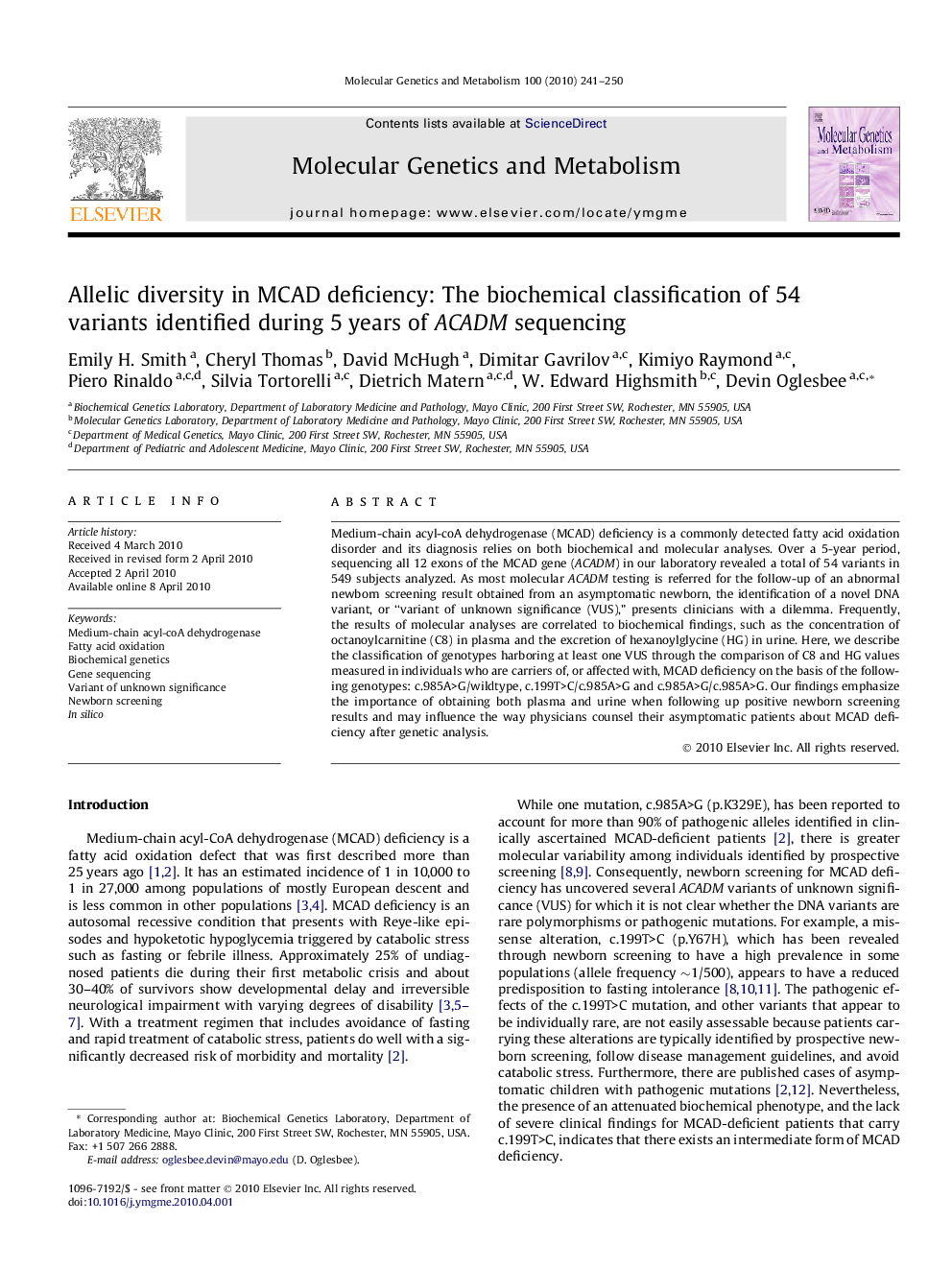| Article ID | Journal | Published Year | Pages | File Type |
|---|---|---|---|---|
| 1999468 | Molecular Genetics and Metabolism | 2010 | 10 Pages |
Medium-chain acyl-coA dehydrogenase (MCAD) deficiency is a commonly detected fatty acid oxidation disorder and its diagnosis relies on both biochemical and molecular analyses. Over a 5-year period, sequencing all 12 exons of the MCAD gene (ACADM) in our laboratory revealed a total of 54 variants in 549 subjects analyzed. As most molecular ACADM testing is referred for the follow-up of an abnormal newborn screening result obtained from an asymptomatic newborn, the identification of a novel DNA variant, or “variant of unknown significance (VUS),” presents clinicians with a dilemma. Frequently, the results of molecular analyses are correlated to biochemical findings, such as the concentration of octanoylcarnitine (C8) in plasma and the excretion of hexanoylglycine (HG) in urine. Here, we describe the classification of genotypes harboring at least one VUS through the comparison of C8 and HG values measured in individuals who are carriers of, or affected with, MCAD deficiency on the basis of the following genotypes: c.985A>G/wildtype, c.199T>C/c.985A>G and c.985A>G/c.985A>G. Our findings emphasize the importance of obtaining both plasma and urine when following up positive newborn screening results and may influence the way physicians counsel their asymptomatic patients about MCAD deficiency after genetic analysis.
